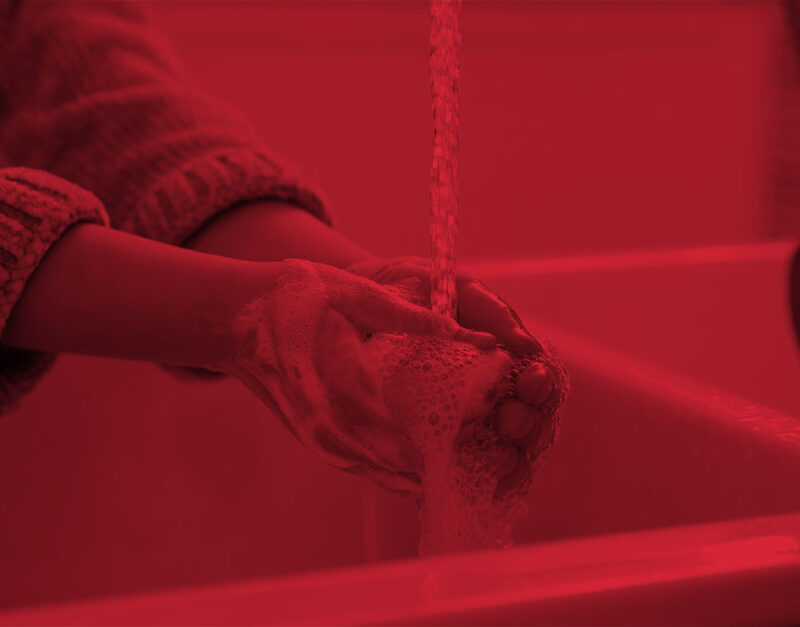 November 2, 2023
November 2, 2023 Washing your hands is considered one of the most effective ways to stay healthy and prevent the spread of common diseases. But if your soap, like many personal care products on the market, contains hazardous chemicals, simple actions like getting clean may cause harm over time.
Why Do Personal Care Products Contain Harmful Chemicals?
Some of the chemicals to look out for have been used for years because they improve the fragrance or the feel of the products, help preserve them on the shelf for long periods of time, or provide useful functionality. When they were first introduced, few companies knew that these chemicals posed health risks for consumers. Now, many of these chemicals have safer alternatives, but these options may be more expensive or less effective. Some companies consider it problematic or expensive to reformulate products without pressure from consumers or regulators.
Regulation of personal care products (which are classified as cosmetics under FDA regulations) is not as stringent as other types of products regulated by the FDA. FDA authority over cosmetics typically covers the accuracy of product labels and the inclusion of warning labels for certain ingredients. The FDA is not authorized to order recalls of unsafe products, although they can request that companies voluntarily recall products that pose safety risks.
Because personal care products are meant for external use, some companies argue that exposure to these chemicals is not as harmful. However, the skin is the largest organ in the body, and it absorbs much of what it is exposed to. Lotions and products meant to be applied on the skin can pose particular risks for exposure, and the combination of different harmful chemicals in the myriad personal care products we use every day can add up.
What Chemicals Should You Look for?
When ensuring that you and your family remain safe from hazardous ingredients in cosmetics and personal care products, there are many things to look out for. Top hazards include:
- Phthalates: These chemicals, present in eyelash glues and other cosmetics, have been linked to endocrine disruption and reproductive difficulties.
- Parabens: These preservatives are often used in shampoos, body washes, toothpaste and other cosmetics. They have been found to mimic estrogen and thus may be linked to increased risk of breast cancer.
- Formaldehyde: Formaldehyde has been linked to irritation of the nose, throat and eyes in consumers, as well as nose and throat cancers in hair stylists and aestheticians who are exposed over long periods of time. Other preservatives – including DMDM hydantoin, diazolidinyl urea, glyoxal, sodium hydroxymethylglycinate, and quaternium-15 – can release formaldehyde gas.
- Coal tar dyes: These products may be listed as M-, O-, or P-phenylenediamine or may be present in FD&C colors present in hair dyes. These are known carcinogens and may cause skin irritation and hair loss.
Also, beware of products that list “fragrance.” The FDA does not require companies to disclose the ingredients in proprietary fragrance blends, so there is no way of knowing if these or other hazardous chemicals are in your products. Be aware that products labeled “unscented” typically contain fragrances to mask the scents of the ingredients. “Fragrance-free” is a better option to avoid fragrance blends.
Another risk is that some of the chemicals used in personal care products, including talc and propellants, can be contaminated with much more dangerous toxic materials. For example, talc is often contaminated with cancer-causing asbestos because the two substances are often found together in nature. And propellants may be contaminated with benzene, a highly carcinogenic chemical that may also cause birth defects. There is no safe level of exposure to benzene.
What Can You Do to Minimize Exposure?
- Read labels and avoid the hazardous ingredients mentioned here
- Choose natural products when possible
- Look for third-party certifications, including the Environmental Working Group’s EWG Verified or COSMOS Natural, which certifies not only ingredients but also manufacturing and packaging processes.
- Use an ingredient database, such as the EWG app or the Non-Toxic Black Beauty Database, to make purchasing decisions.
- Ask for more oversight of cosmetic safety and more transparency from companies. Even though these products aren’t meant for ingestion, our skin absorbs a lot of what we encounter in the environment, leaving us at risk of harmful effects.
Once you start reading ingredient lists, it may seem nearly impossible to avoid toxic chemicals. But more states are providing more regulation than the FDA, including banning chemicals and requiring more warning labels. Start choosing products that don’t have these chemicals and that don’t have “fragrance” listed on their labels. If you buy natural or locally made products, ensure that they are tested for contaminants and that the ingredient lists are accurate. Many nontoxic alternatives to these hazardous chemicals exist, but they may increase the cost of the products to consumers.
Chemicals may be a daily part of life, but you can work to minimize their effects on you and your family.
How Do We Fight Corporate Negligence?
Seek justice with the help of our experienced attorneys. We’ve battled corporate giants on behalf of individuals like you for 20 years, aggressively fighting those responsible for personal injury and wrongful death caused by corporate wrongdoing and fraud committed against the government. If you’ve suffered catastrophic injury or loss caused by corporate negligence or believe you have a government whistleblower case, we can help. Contact is kept confidential.


